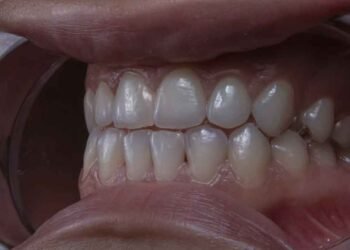Have you ever felt the sudden isolation from hearing loss in one ear only? It’s a disorienting experience, leaving you struggling to locate sounds and missing out on meaningful conversations. Understanding the causes behind this condition can help shed light on your situation and guide you toward potential solutions.
In this article, we will explore the various factors that can lead to hearing loss in one ear only. From conductive hearing loss caused by obstructions or damage in the ear canal to sensorineural hearing loss stemming from issues within the inner ear or auditory nerve, we will delve into each possibility.
Additionally, we will discuss Ménière’s Disease, a disorder known for causing unilateral hearing loss along with vertigo and tinnitus. Another potential culprit is acoustic neuroma, a benign tumor that can press against the auditory nerve and result in single-sided deafness.
By gaining a deeper understanding of these conditions and exploring available hearing loss treatment options, you will be equipped with the knowledge to navigate your journey toward better hearing health. So let’s embark on this informative exploration together!
Conductive Hearing Loss in One Ear
Conductive hearing loss in one ear can be caused by various factors. It occurs when sound can’t effectively travel through the outer or middle ear to the inner ear. This type of hearing loss is often treatable and doesn’t typically result in complete deafness.
There are several common causes of conductive hearing loss in one ear. One possible cause is a blockage in the ear canal, such as excessive earwax buildup or a foreign object lodged inside. Another cause could be an infection, such as otitis media, which can lead to fluid accumulation in the middle ear and affect sound transmission.
Treatment options for conductive hearing loss depend on the underlying cause. In some cases, removing the blockage or treating the infection may restore normal hearing. Other treatment methods include medication, surgery, or using a hearing aid to amplify sounds.
If you suspect you have conductive hearing loss in one ear, it’s important to consult with a healthcare professional who specializes in treating hearing loss. They can evaluate your symptoms and recommend appropriate treatment options tailored to your specific needs.
Sensorineural Hearing Loss in One Ear
If you’re experiencing sensorineural hearing loss in just one ear, it’s most likely due to damage to the inner ear or auditory nerve. Sensorineural hearing loss occurs when there is a problem with the hair cells in the cochlea or with the auditory nerve itself. These hair cells are responsible for converting sound vibrations into electrical signals that can be interpreted by the brain.
Damage to these delicate structures can occur as a result of aging, exposure to loud noises, certain medications, infections, or head trauma. It’s important to consult with an audiologist or otolaryngologist if you’re experiencing sensorineural hearing loss in one ear, as they can determine the underlying cause and provide appropriate treatment options such as hearing aids or cochlear implants.
Ménière’s Disease and Unilateral Hearing Loss
Ménière’s Disease commonly leads to unilateral hearing impairment. This condition affects the inner ear and is characterized by episodes of vertigo, tinnitus, and fluctuating hearing loss. When it comes to Ménière’s Disease, the exact cause remains unknown. However, it’s believed that fluid buildup in the inner ear plays a significant role in causing these symptoms. The excess fluid disrupts the delicate balance within the inner ear, leading to damage to the sensory cells responsible for transmitting sound signals to the brain.
In Ménière’s Disease, individuals often experience sudden attacks of vertigo accompanied by severe dizziness and a ringing sensation in one ear. These episodes can last for hours or days and may be accompanied by temporary hearing loss in that same ear. Over time, repeated attacks can lead to permanent hearing loss in one ear only.
If you suspect you may have Ménière’s Disease or are experiencing unilateral hearing loss; it’s important to consult with a healthcare professional who specializes in audiology or otology. They can provide an accurate diagnosis and recommend appropriate treatment options tailored specifically to your needs.
Acoustic Neuroma and Unilateral Hearing Loss
An acoustic neuroma, also known as a vestibular schwannoma, can lead to hearing impairment in one ear. This non-cancerous tumor develops on the nerve responsible for transmitting sound and balance information from the inner ear to the brain.
As it grows, it can compress and damage this nerve, resulting in hearing loss in one ear.
The exact cause of acoustic neuromas is still unknown, but certain factors may increase the risk of developing these tumors. These include a genetic predisposition, exposure to high levels of radiation, and a condition called neurofibromatosis type 2 (NF2).
If you experience sudden or gradual hearing loss in one ear along with other symptoms such as ringing in the ears (tinnitus), dizziness, or imbalance, it is important to seek medical attention. A thorough evaluation by an audiologist or an ENT specialist can help determine if an acoustic neuroma is causing your unilateral hearing loss.
Early detection and treatment are crucial for managing this condition effectively.
Treatment Options for Unilateral Hearing Loss
Options for unilateral hearing loss treatment may include hearing aids, cochlear implants, or auditory brainstem implants. Hearing aids are commonly used to amplify sound and improve hearing in the affected ear. They can be custom-made to fit comfortably and discreetly in the ear.
Cochlear implants are another option, especially for individuals with severe or profound hearing loss. This surgical procedure involves implanting a device that directly stimulates the auditory nerve, bypassing the damaged inner ear.
Auditory brainstem implants are typically reserved for individuals who cannot benefit from traditional hearing aids or cochlear implants due to damage to their cochlea or auditory nerve. This procedure involves surgically implanting electrodes directly into the brainstem to stimulate hearing pathways.
It is important to consult with an audiologist or otolaryngologist to determine which treatment option is most suitable based on individual needs and circumstances.
Conclusion
In conclusion, it’s crucial to understand the various causes of hearing loss in one ear only. Conductive hearing loss can be caused by factors such as earwax blockage or structural abnormalities. Sensorineural hearing loss may result from damage to the inner ear or auditory nerve. Ménière’s Disease and acoustic neuroma are also potential culprits. Fortunately, treatment options are available depending on the underlying cause. It’s imperative to seek medical advice for proper diagnosis and management. Remember, early intervention can make a significant difference in preserving your hearing health.












